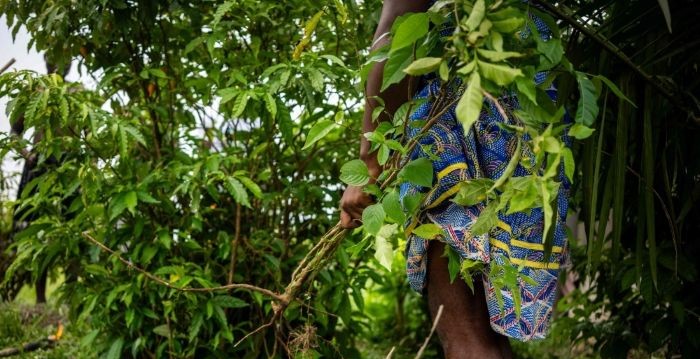(4 Minutes Read)
In Gabon’s rainforests, the sacred iboga shrub—central to the Bwiti tradition—is now at the center of global interest for its hallucinogenic and healing properties. As demand rises from wellness industries and pharmaceutical firms, Gabon is racing to regulate and commercialise the plant while protecting it from ecological harm, exploitation, and intellectual property theft. With just one export license granted and synthetic alternatives emerging, the country faces urgency to secure control over this vital cultural and economic resource.
Deep in the tropical forests of Gabon, hidden among the roots of the iboga shrub, lies a plant long revered by local communities and now attracting global attention from researchers, wellness enthusiasts, and pharmaceutical companies. For generations, followers of the Bwiti spiritual tradition have used iboga in ceremonial rituals, consuming its root bark for its powerful hallucinogenic and believed healing effects. With growing worldwide interest in alternative therapies, Gabon is moving quickly to protect and harness a resource of both spiritual and economic importance.
A report from Agence France-Presse (AFP) notes that while iboga is deeply embedded in ancestral practices, Gabon is increasingly aiming to turn this heritage into a regulated industry. Teddy Van Bonda Ndong, a 31-year-old Bwiti devotee, told AFP he takes small daily doses of what he calls “sacred wood,” which he credits for supporting his mental and physical health.
Iboga’s appeal has reached well beyond Gabon. Stephen Windsor-Clive, a 68-year-old retiree from the UK, travelled to the country to take part in a 10-day Bwiti initiation and try iboga as a possible remedy for his daughter’s mental health struggles. “There’s a powerful energy in this plant,” he said, convinced of its healing potential after participating in the rituals.
He’s not alone. Zimbabwean visitor Tafara Kennedy Chinyere also took part in the ceremony, seeking relief from anxiety and emotional turmoil. Afterwards, he described a newfound peace and a sense of release, saying the experience helped him shed psychological burdens.
Despite its spiritual significance and international interest, Gabon currently restricts iboga exports. However, the government is now aiming to balance conservation with economic development by exploring regulated cultivation and commercialisation.
Forestry official Florence Minko explained to AFP that although iboga mostly grows wild, initiatives to cultivate it are increasing. The plant’s active compound, ibogaine, can be toxic in high doses, causing hallucinations and even cardiac issues. Nevertheless, many advocates believe it could treat conditions like drug addiction, PTSD, and certain neurological disorders.
Yoan Mboussou, a microbiologist and Bwiti follower, has developed ibogaine capsules in a lab near Libreville. He markets them locally as supplements for fatigue and addiction and is pursuing an export license. “Iboga could become a catalyst for national economic growth,” he said.
Yet international drug regulations pose major hurdles. In countries like the U.S. and France, iboga is classified as a narcotic, even as clinics in the Netherlands, Mexico, and Portugal legally administer it. Dozens of pharmaceutical patents for ibogaine therapies are already in place, many drawing on traditional Gabonese knowledge.
Yann Guignon of the conservation group Blessings of the Forest believes Gabon has been too slow to tap into this opportunity. “The plant has huge medical value, but Gabon hasn’t yet unlocked its economic potential,” he told AFP, pointing to the absence of large-scale farms, research centers, and an organised industrial strategy.
Further complicating matters is the emergence of synthetic ibogaine and the extraction of the compound from other plants like Voacanga africana, which grows in places like Ghana and Mexico. These alternatives offer cheaper, higher-volume production. Gabon also faces the challenge of protecting indigenous knowledge, which lacks proper safeguards under global intellectual property laws, making it vulnerable to exploitation.
Read Also;
https://trendsnafrica.com/au-lifts-sanctions-against-gabon/
Currently, only one Gabonese company is authorised to export iboga. However, Minko said the government plans to increase that number and is working under the Nagoya Protocol, which promotes fair use of genetic resources.“This plant is an invaluable asset for Gabon,” she said. A national strategy for its sustainable use is already in motion, and talks with scientists, NGOs, and traditional healers are being planned. The goal is to secure a “Made in Gabon” label and ensure the country benefits from the international iboga trade.
As the world races to commercialise iboga, Gabon is striving to maintain sovereignty over this sacred plant, turning it into a national treasure before others capitalise on its potential.





